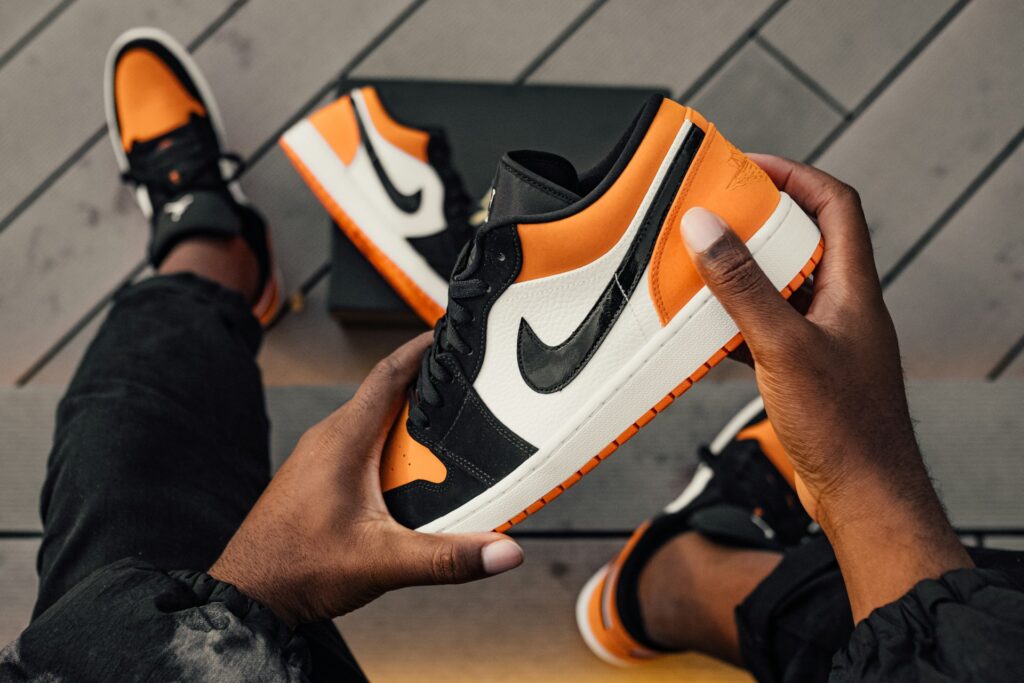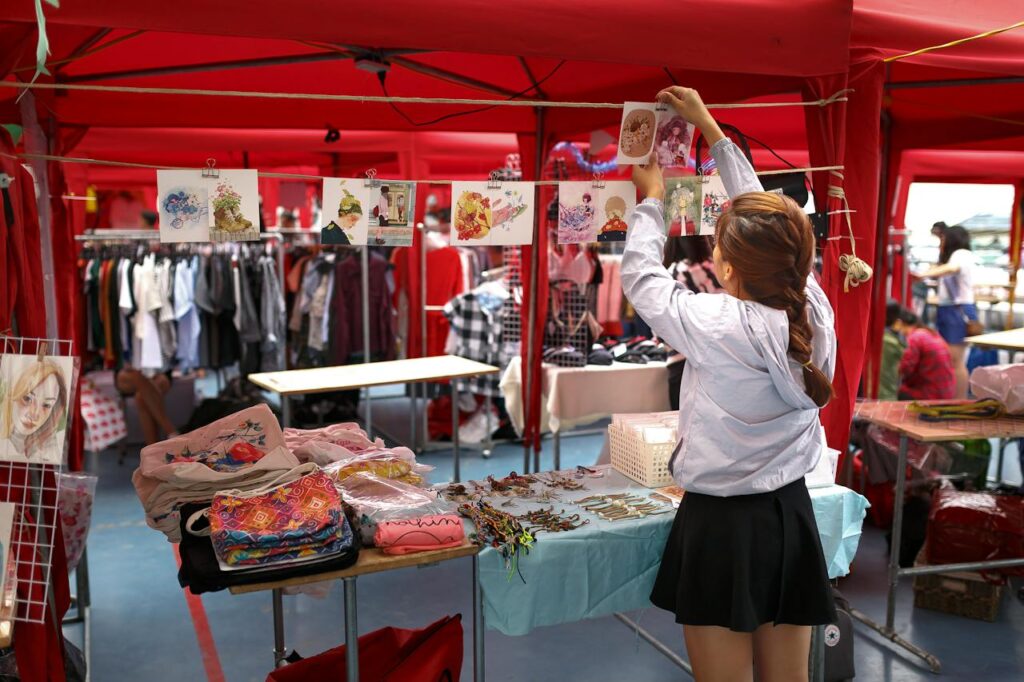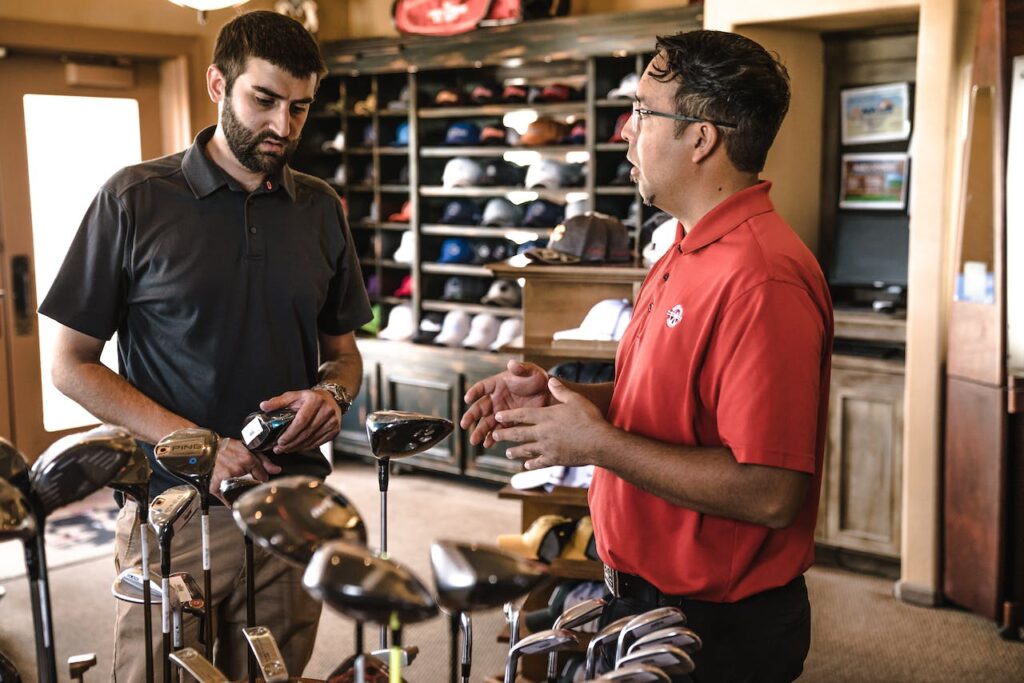Best Things to Resell: 33 Profitable Items & Best Ways to Find Them in 2023

Introduction
In today’s dynamic economy, the art of reselling has become not just a way to earn extra cash, but a thriving business model. The year 2023 has seen a significant rise in the popularity of reselling, with more and more individuals looking to capitalize on this opportunity.
Whether it’s vintage clothing, limited edition sneakers, or good quality wood furniture, the market for resold items is expanding rapidly. This blog post will guide you through the process of identifying the best things to resell, where to find them, and how to sell them for a profit.
From thrift stores to online marketplaces, we’ll cover all the bases to help you make the most out of your reselling ventures.
You may found out interesting these articles:
The Art of Flipping Items: An Overview
Flipping items, a term that has gained a lot of traction in recent years, refers to the act of purchasing items at a lower price and reselling them for a profit. This concept is at the heart of a profitable resell business and hinges on the ability to spot good deals and understand the dynamics of the resale market.
The appeal of flipping lies in its accessibility and potential for high returns. Virtually anyone can start reselling items with minimal investment. The key is to know what items are in high demand and where to find them. This can range from scouring local garage sales and flea markets to keeping an eye on clearance sections in retail stores.
In the world of reselling, the secondhand apparel market has seen significant growth, thanks to the increasing awareness of sustainable fashion. But the scope of reselling extends far beyond clothing. Items like vintage toys, exercise equipment, and even power tools are hot commodities in various online platforms. The trick is to understand what makes an item desirable in the resale market, whether it’s its rarity, condition, or brand.
Why Resell? Benefits of the Secondhand Apparel Market and Beyond

Reselling isn’t just about making extra cash; it’s about participating in a sustainable cycle that benefits the environment and the economy. The secondhand apparel market, for instance, is a booming sector, repurposing clothing and reducing waste. But the benefits of reselling extend to other areas too.
When you resell items, you give them a new life. This reduces the need for new production, conserving resources and energy. It’s also a fantastic way for consumers to save money and access quality products at a fraction of their retail price. From vintage clothing to high-end electronics, the range of products available in the resale market is vast and varied.
Moreover, reselling can be a gateway to entrepreneurship. It provides a low-barrier entry to starting a business, teaching valuable skills like marketing, negotiation, and customer service. Whether you choose to sell online or at local yard sales, you’re engaging in a real-world business experience that can be both financially and personally rewarding.
Best Things to Resell

Now, let’s dive into the heart of the matter: the best things to resell. Based on market trends and consumer demand, here are some of the top categories and items that promise good returns:
Vintage Clothing:
There’s a huge market for vintage and retro fashion. Look for unique pieces at thrift stores and estate sales. Brands from the 90s or earlier can be especially valuable.
Limited Edition Sneakerheads
are always on the hunt for rare finds. Limited edition sneakers from brands like Adidas and Nike can fetch a high price, especially if they’re in good condition.
Good Quality Wood Furniture:
Mid-century modern furniture and well-crafted pieces are in high demand. They can often be found at garage sales or estate sales and resold at a higher price.
Vintage Toys:
Old toys, especially if they’re in their original packaging, can be surprisingly valuable. Estate sales and online platforms are good places to scout for these.
Exercise Equipment:
With a growing focus on fitness, gently used exercise equipment like weights and treadmills are sought after. Garage sales and online marketplaces can be goldmines for these items.
Power Tools:
Quality power tools retain their value well and are always in demand. Check out local garage sales or online sales for these practical finds.
Board Games:
Vintage and rare board games are collector’s items and can be sold for a profit. Look for them at thrift shops and yard sales.
Sports Memorabilia:
Items like signed jerseys, balls, or cards can be extremely lucrative, especially if they’re from popular brands or iconic sports figures.
Musical Instruments:
Instruments in good condition can be resold at a higher price. They’re often found at house clearance sales or local thrift stores.
Designer Shoes and Brand Name Clothing:
High-end fashion items, particularly those from brands, can be very profitable. Look for these at consignment stores or online platforms.
Vintage Coffee Mugs and Cabinet Knobs:
Surprisingly, these small items can be collectible and desirable. Antique shops and flea markets are the best places to find them.
Trading Cards:
Especially those related to sports or popular franchises, can fetch a good price. They’re often found at garage sales or through online sites.
Used Cars and Fitness Equipment:
While these require more investment, the profit margin can be significant. Always make sure to assess the condition and market value properly.
Electronics:
Gently used or refurbished electronics like laptops, cameras, and smartphones are always in demand on online marketplaces.
Antique Furniture:
Pieces with unique craftsmanship or historical value can be found at estate sales or antique shops and resold for a higher price.
Collectible Coins and Stamps:
These timeless collectibles are always in demand among hobbyists and can be sourced from estate sales or specialized online platforms.
Photography Equipment:
Vintage cameras and lenses, as well as modern photography gear, are sought after by both professionals and enthusiasts.
Books and Comics:
First editions, vintage comics, and rare books can turn a hefty profit. Look for these at garage sales, thrift stores, and library sales.
Artwork and Decorative Items:
Paintings, sculptures, and unique home decor items can be found at flea markets and resold online for a higher price.
Tech Gadgets and Accessories:
Latest tech gadgets or gently used high-demand tech accessories can be resold at online marketplaces.
Kitchen Appliances:
High-end or vintage kitchen appliances in good condition, like mixers or espresso machines, can be flipped for a profit.
Gardening Tools and Equipment:
Quality gardening tools and outdoor equipment are in demand, especially during the spring and summer seasons.
Baby Gear and Children’s Items:
Strollers, high chairs, and other gently used baby items are always needed by new parents looking to save money.
Watches and Jewelry:
Vintage or designer watches and jewelry can be found at estate sales and resold online for a higher price.
Rare Vinyl Records and CDs:
Music collectors often seek out rare or vintage records and CDs, which can be found at yard sales or thrift shops.
Handmade Crafts and Artisanal Goods:
Unique handmade items can attract buyers looking for something special and not mass-produced.
Seasonal Items:
Holiday decorations, costumes, and other seasonal items can be purchased off-season at a lower price and resold when in demand.
Pet Accessories:
High-quality pet items like beds, carriers, and toys can be resold, especially if they are from popular brands.
Camping and Outdoor Gear:
Tents, hiking backpacks, and other outdoor equipment in good condition can fetch a good price.
Vintage Electronics and Gadgets:
Older models of popular electronics, when in good condition, have a niche market of collectors and enthusiasts.
Car Parts and Accessories:
There’s a market for certain car parts and accessories, especially for classic or high-demand models.
Office Equipment and Furniture:
Quality office chairs, desks, and other office furnishings can be resold to home office workers and small businesses.
Priceless Classic Car
Although this requires a significant investment, classic cars in good condition can be incredibly profitable to resell.
Each of these items has its own niche in the resale market. The key is to understand what makes an item desirable – its rarity, brand, condition, or nostalgia factor – and to find the right platform to sell it. With the right approach, each of these items can turn into a profitable venture in the world of reselling.
Finding Treasures: Thrift Stores, Estate Sales, and Garage Sales

To become successful in the reselling business, knowing where to source your items is crucial. Thrift stores, estate sales, and garage sales are treasure troves for resellers. Here’s how to make the most out of these sources:
- Thrift Stores: These are ideal for finding a wide range of items from clothing to home decor at low prices. Look for brand name clothing, vintage items, and other unique finds. Regular visits and establishing good relationships with the staff can lead to tips on when new stock is arriving.
- Estate Sales: These sales often have higher quality items than garage sales, including antiques, collectibles, and higher-end furniture. They are excellent for finding vintage clothing, rare books, and collectible items. It’s important to arrive early to get the best selection.
- Garage and Yard Sales: Local garage sales and yard sales can be gold mines for finding items at significantly low prices. These are great for picking up exercise equipment, board games, and kitchen appliances. Haggling is more accepted here, so it’s a good opportunity to negotiate prices down.
When visiting these places, it’s essential to have an idea of the market value of items to ensure you’re getting a good deal. Also, be prepared to sift through a lot of items to find the few that are worth reselling.
Retail Stores: A Source for Resellable Goods

Retail stores can also be a great source for items to resell, especially when they offer sales or clearance items. Here’s how to capitalize on retail store finds:
- Clearance Sections: Retail stores often discount items significantly in clearance sections. Look for deep discounts on items like brand name clothing, electronics, and seasonal goods.
- Discount Retailers: Stores like T.J.Maxx or Ross can have brand-name and designer items at a fraction of their retail price. These can be resold for a profit online.
- Overstock and Liquidation Sales: Sometimes retailers have overstock sales or liquidation sales where you can purchase items in bulk at a lower price. This is especially useful for those looking to resell items in larger quantities.
When buying from retail stores to resell, it’s important to be aware of the retail price versus the potential resale value. Always consider factors like brand popularity, item condition, and current market trends before making a purchase.
Online Marketplaces: The Hub for Selling Online
In the digital age, online marketplaces have become the cornerstone for resellers. Platforms like eBay, Etsy, and Facebook Marketplace provide access to a vast audience and simplify the selling process. Here’s how to effectively utilize these platforms:
- eBay and Etsy: Ideal for selling unique, vintage, or collectible items. Understanding the listing process, including taking quality photos and writing detailed descriptions, is key. Also, keeping an eye on what’s trending can help in listing items that are in high demand.
- Facebook Marketplace: This platform is excellent for selling locally, reducing the need to worry about shipping costs. It’s particularly good for larger items like furniture or exercise equipment. Building a good reputation through customer reviews can significantly boost your sales.
- Other Online Platforms: Websites like Craigslist, OfferUp, and Poshmark each have their unique audience. Poshmark, for instance, is great for reselling clothing, especially designer brands.
When selling online, consider factors like the competition, platform fees, and the best time to list items. Detailed and honest descriptions, along with competitive pricing, are crucial for success.
The Role of Shipping Costs and Selling Fees
While online selling opens up a world of possibilities, it also comes with additional costs. Shipping costs and selling fees can eat into your profits if not managed properly. Here’s how to handle these:
- Shipping Costs: These can vary significantly based on the size and weight of the item. Offering free shipping can attract more buyers but make sure to factor this into your selling price. Utilize shipping calculators provided by postal services to estimate costs accurately.
- Selling Fees: Most online platforms charge a fee for listing or selling items. Be sure to understand these fees and incorporate them into your pricing strategy. Some platforms have higher fees than others, so choose the one that best fits your profit margin goals.
- Packaging: Proper packaging is essential to ensure items reach buyers in good condition. While this is an additional cost, using recycled materials can help keep expenses low.
Balancing these costs with your selling price is crucial. Always aim for a price that covers these expenses while still being attractive to buyers. Understanding the nuances of shipping and fees will help you become a more effective and profitable online seller.
Specialty Items: From Vintage Toys to Sports Memorabilia

Delving into specific niches can significantly boost your reselling business, as specialized items often attract passionate buyers willing to pay a premium. Here’s a look at some lucrative niche markets:
- Vintage Toys: Classic toys, especially those in their original packaging, are highly sought after. Look for these at estate sales, online auctions, and flea markets. Researching the era and the brand can help in pricing them correctly.
- Sports Memorabilia: Items like autographed balls, jerseys, or rare trading cards have a dedicated collector base. Authenticity is key here, so providing verification or certificates of authenticity can greatly increase value.
- Musical Instruments: Both vintage and modern musical instruments, if in good condition, can be quite profitable. They can be sourced from garage sales, music schools, or online classifieds. Ensure they are in working order or clearly state any repairs needed.
- Designer Shoes and Brand Name Clothing: High-end fashion items are always in demand. Platforms like Poshmark or The RealReal are ideal for selling these items. Knowing the current fashion trends and brand values is crucial for successful sales.
These niche markets require a bit of expertise and research but can be highly rewarding. Understanding the specific demands and trends of each niche is crucial for maximizing profits.
Flea Markets and Antique Shops: Untapped Reselling Potentials

Flea markets and antique shops are often overlooked, yet they are goldmines for unique and valuable items. Here’s how to make the most of these venues:
- Flea Markets: These are great for finding a variety of items at low prices. Early morning visits can yield the best finds. Look for vintage clothing, antique furniture, and collectible items. Negotiating skills are key here, as sellers are often open to haggling.
- Antique Stores: While items here may be priced higher, they often hold significant value. Look for rare collectibles, vintage decor, and unique art pieces. Building relationships with store owners can lead to them calling you when something interesting comes in.
Both flea markets and antique stores require a good eye for value and authenticity. Researching beforehand and having a niche focus can help in identifying items that will sell well online or in specific collector markets.
Luxury and Brand Items: Designer Shoes, Adidas and Nike Styles

The market for luxury and branded items is vast and profitable, especially for items in good condition or with a sought-after label. Here’s how to tap into this lucrative segment:
Designer Shoes and Clothing: High-end brands like Gucci, Louis Vuitton, or even popular sports brands like Adidas and Nike have a huge resale market. Look for these items in consignment stores, estate sales, or as part of clearance sales in retail stores.
Authenticity Is Key: For luxury items, authenticity is crucial. Ensure that you have a way to verify the authenticity of the product, as this greatly affects its value and saleability.
Consignments and Online Business Opportunities
Expanding into consignment selling and leveraging online business models can significantly enhance your reselling operations. Here’s how to approach these opportunities:
- Consignment Stores: Partnering with local consignment stores can be a hassle-free way to sell items, especially for luxury or high-end products. These stores take care of the selling process in exchange for a percentage of the sale. It’s a great option for those who prefer not to handle the direct selling and marketing of items.
- Starting an Online Reselling Business: Creating an online store on platforms like Shopify or Etsy can provide more control over your business. This approach allows you to build a brand, develop a customer base, and potentially earn higher profits. It requires more effort in terms of marketing and customer service but can be more rewarding in the long run.
- Utilizing Social Media: Platforms like Instagram and Pinterest can be powerful tools for promoting your items, especially visually appealing ones like vintage clothing or unique home decor. Social media marketing can drive traffic to your online store or marketplace listings.
- Building Customer Relationships: Whether through consignment, an online store, or social media, building a rapport with customers can lead to repeat business and referrals. Providing excellent customer service and engaging with your audience can set you apart from the competition.
A Few Pointers on Making Reselling Profitable
To ensure your reselling business is not just active but also profitable, here are some key strategies:
- Understand Your Market: Research the current demand and price range for the items you plan to sell. This knowledge will help in pricing your items competitively and spotting profitable opportunities.
- Quality Over Quantity: Focus on items that offer a higher profit margin rather than trying to sell a large number of low-value items. This approach reduces effort and increases profitability.
- Efficient Sourcing: Develop efficient methods for sourcing items. Building relationships with thrift store managers or estate sale organizers can give you an edge in finding valuable items before they hit the market.
- Track Expenses and Profits: Keep a detailed record of all expenses, including purchase costs, restoration costs, shipping, and fees. This will help you understand your true profit margins and identify areas for improvement.
- Diversify Your Platforms: Don’t rely on a single platform for sales. Utilize different online marketplaces and possibly your own website to reach a wider audience and reduce the risk.
- Continuous Learning and Adaptation: Stay updated with market trends and continuously adapt your strategies. Joining online forums, following reselling blogs, and networking with other resellers can provide valuable insights and tips.
Implementing these strategies can help turn your reselling activities into a sustainable and profitable venture. Remember, success in reselling comes from a combination of good sourcing, smart selling, and effective business management.Condition Matters: The better the condition, the higher the price you can command. Keep an eye out for items that are gently used or, ideally, in like-new condition.
Know Your Platforms: Certain platforms cater more to luxury goods. Websites like The RealReal or Vestiaire Collective specialize in high-end fashion, offering a more appropriate audience for these items.
Bigger Investments: Furniture, Exercise Equipment, and Cars

While smaller items are easier to start with, investing in larger items like furniture, exercise equipment, and cars can bring significant profits. Here’s how to approach this segment:
Mid-Century Modern Furniture: This style is particularly popular and can fetch high prices. Look for these pieces at estate sales, auctions, or even on the curb during large-item trash days.
Exercise Equipment: High-quality exercise equipment, especially well-known brands, can be resold for a good profit. Source these from gym closings, online classifieds, or garage sales.
Used Cars: This requires a larger investment and more knowledge, but the profit margins can be substantial. Look for cars that need minor repairs, fix them up, and sell them for a higher price.
Storage and Transportation: Consider the logistics of storing and transporting larger items. This may require additional investments like renting storage space or a vehicle for transportation.
Market Research: For larger items, understanding the market demand and pricing trends is crucial. Keep an eye on online marketplaces and classifieds to gauge the going rates for similar items.
Investing in larger items can be more challenging but also more rewarding. With the right knowledge and strategy, you can make significant profits in these higher-ticket segments.
Conclusion
Embarking on a journey in the reselling world can be both exciting and profitable. This comprehensive guide has walked you through identifying the best things to resell, where to find them, and how to sell them for a profit. From exploring local thrift stores and estate sales to leveraging the power of online marketplaces like Facebook Marketplace, the opportunities are vast.
Remember, success in reselling hinges on your ability to spot good deals, understand market trends, and effectively market your items. Whether it’s flipping vintage clothing, reselling limited edition sneakers, or finding a niche in vintage toys or sports memorabilia, each item has its unique appeal and potential for profit.
